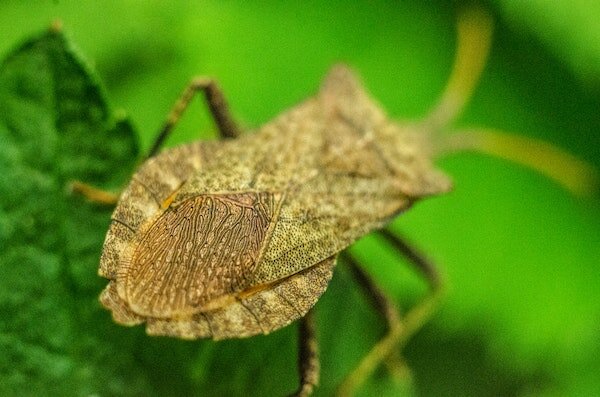Most Common PA Plant Pests & How to Address Them
Pennsylvania offers lush landscapes and rich, well-drained soil. Perfect for gardening, farming, and creating the backyard oasis you've always wanted.
But unfortunately, that's not all PA has to offer. We've pulled together a few of the pests your plants will face living in Pennsylvania, and what you can do to get rid of them.
Fall Webworm
The fall webworm is a type of moth that feeds on trees and shrubs. You may not notice them, but you've certainly seen their nests. In their larval stage, they encase branches in almost a sheet of webbing. So that within the enclosure they can feed on the leaves. Fall webworms don't actually serve as a real threat to trees, just more of an aesthetic issue. They only feed on leaves nearing the end of their lifespan anyway, so it will come back just fine next year.
Brown Marmorated Stink Bugs
It doesn't take long in PA to come across a stink bug. If you've lived here, you've found them in your house and probably had the misfortune of smelling one. But what many people don't realize is they're not just a nuisance to humans. They survive by sucking the juice from plants. Stink bugs sucking the juice from houseplants is ultimately pretty ineffectual, however getting into your garden, they feed on the fruiting parts of plants. They leave scars on the fruit that almost resemble water damage or discoloration.
Japanese Beetles
They arrived here in the roots of Japanese irises in the early 1900s. And they've not been picky eaters. They feed on plants and flowers, especially roses and berries (yum!). Japanese beetles wouldn't cause such severe damage if it weren't for the fact that they attack one plant in large groups. So in just a few days, they can eat the leaves of a plant down to their veins.
What You Can Do
So many of the plant pests you'll encounter arrive in the plant. So before you bring your new plant home, inspect it for bugs or larvae. When repotting or moving around plants, clean the pots and always use fresh soil. This prevents any eggs that may have been laid last summer from getting to hatch in your new plant. If you do find an infested or diseased plant, be sure to isolate it from the rest of your plants so as not to spread further.
Having a garden, flower bed, or houseplants--while rewarding--does require lots of time and attention. Our team of skilled professionals knows exactly how to protect and care for the native and non-native plants of Pennsylvania. Reach out today for a free estimate on your dream gardens!
